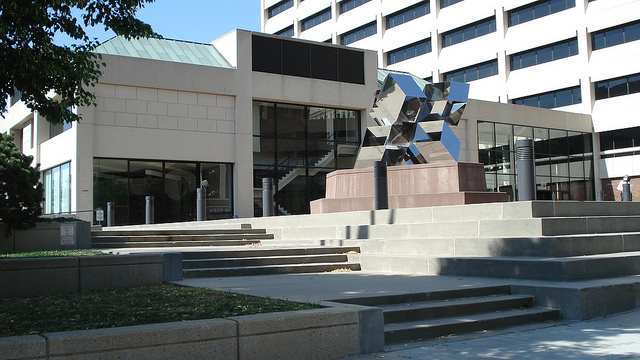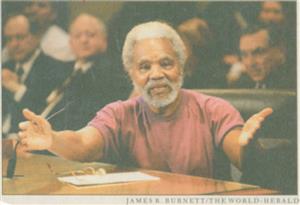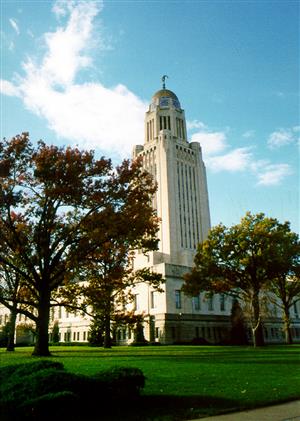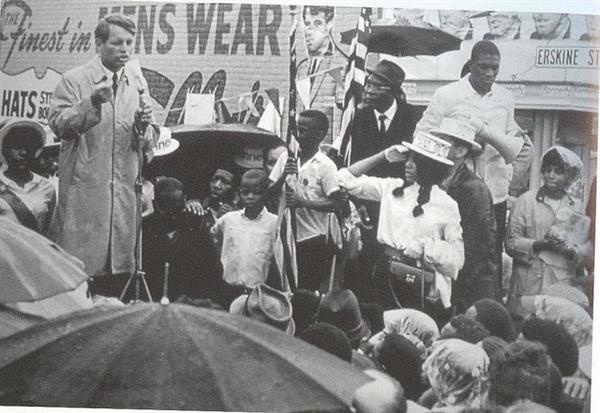Making Invisible Histories Visible
Page Navigation
- Making Invisible Histories Visible
- Lesson Plans and Resources
- iBooks on Omaha and Nebraska History for Primary Students
- Omaha Mapping Projects
-
African American Histories
- African American Artists
- African American Athletes & Facilities
- African American Churches
- African American Civil Rights Organizations - 1950s-1960s
- African American Civil Rights
- African American Contributions to Jazz, Gospel, Hip-Hop
- African American Dramatic Arts
- African American Education - Dorothy Eure & Lerlean Johnson
- African American Educators & Education
- African American Firefighters
- African American Homesteaders
- African American Law Enforcement
- African American Migration to Omaha
- African American Musicians of Omaha
- African American Newspapers
- African American Owned Businesses
- African American Politicians
- African American Social Life
- African American Workers at Omaha's Railroads & Stockyards
- African American Workers at the Naval Ammunition Depot in Hastings
- African Americans in the Civil War
- African Americans in Vietnam
- Charles B. Washington - Journalist and Civil Rights Leader
- Elizabeth Davis Pittman - Lawyer/Judge
- Green Book Omaha
- Marlin Briscoe - Professional Football Player
- Native Omaha Days
- Nebraska's Role in the Underground Railroad
- Sen. Edward Danner - Politician & Civil Rights Activist
- Sudanese Refugees
- Tuskegee Airmen
- European and Asian Immigrant Histories
-
Historic Neighborhoods & Buildings
- 24th and Binney/Wirt/Spencer Streets
- 24th and Lake Streets
- Central Park Neighborhood - 42nd and Grand Avenue
- Dahlman Neighborhood - 10th and Hickory Streets
- Hartman Addition Neighborhood - 16th and Williams Streets
- Indian Hills/Southside Terrace Neighborhood - 30th and Q Streets
- Jefferson Square Neighborhood - 16th and Chicago Streets
- Long Neighborhood - 24th and Clark Streets
- Orchard Hill Neighborhood - 40th and Hamilton Streets
- Smithfield Neighborhood - 24th and Ames Avenue
- St. Mary's Neighborhood - 30th and Q Streets
- Latino Histories
- Music Histories
-
Native American Histories
- Black Elk and John G. Niehardt
- Chief Standing Bear and Susette La Flesche Tibbles
- Dr. Susan LaFlesche Picotte - Native American Doctor
- Native American Education and Boarding Schools
- Native Americans in the Military
- Pre-statehood Interaction of Native Americans and Europeans
- Preserving Native American Tradition
- Restoring the Ponca Tribe
- The American Indian Movement in the 1960s and 1970s
- The Indian Congress at the 1898 Trans-Mississippi Exposition
- The Omaha Native American Indian Tribe
- OPS Elementary School History
- Redlining in Omaha
- Nebraska's Role in the Underground Railroad
- The 1898 Trans-Mississippi Exposition
African American Politicians
-
What are some of the key legislative accomplishments of Black elected officials in Nebraska?
Giving a Voice to the Black Community through Politics

African Americans in Politics
-
In order to improve their community, several African Americans in Nebraska have decided to get involved in politics. They have held positions ranging from those on the City Council to the State Legislature. Several African Americans have also been appointed to positions in the government by governors and mayors. Involvement in politics allows African Americans a way to improve their community by working to change laws and policies that are detrimental to their community and create new laws and policies that would help people in their community move ahead. The inclusion of African Americans in positions in city, state, and local government works not only to benefit the African American community, but the benefits of having diversity in community service positions can help everyone in the community. Black politicians, along with others from marginalized groups, offer unique perspectives that can serve the community as a whole.
A 7 minute video produced in 2011 interviewing Fred Conley and Brenda Council.
African Americans in Omaha Politics
-
It was extremely difficult, and in several cases impossible, for African Americans to obtain positions in city government due to the practice of at-large elections. In at-large elections, candidates are voted on by the entire population and those with the most votes win. Because the majority of the population in Omaha is White, only White candidates were able to get enough votes to get elected. State Senator Ernie Chambers, along with several community activists including Fred Conley, fought for change to district-based voting. This system divided the city into smaller communities/districts that gave African Americans the power to choose who would represent them. Although the city of Omaha voted against the change, the Nebraska State Legislature approved district voting in 1975 for Omaha School Board, 1979 for City Council, and 1992 for Douglas County Board. These changes to the election process opened the doors for several African Americans to be elected to positions in Omaha. In 1981, Fred Conley was the first Black elected to the City Council and Brenda Warren Council was the second, elected in 1993. Other African Americans to serve on the City Council were Frank Brown, Franklin Thompson, and Ben Gray. Another first for African Americans in city politics due to the creation of districts includes Carole Woods Harris as the first Black person elected to the Douglas County Board in 1992. When asked about the impact of district-based elections, Conley was quoted as saying “Were it not for district elections in Omaha, it is doubtful any Black could have achieved what has been achieved so far.”
A Lifetime of Service: Ernie Chambers
-
 One of the most influential African Americans to serve in the Nebraska State Legislature was Ernie Chambers. Chambers, an Omaha native, has been extremely active in his community from a young age when he was a member of the NAACP Youth Council. In 1966, Chambers appeared in the Academy Award-nominated documentary “A Time for Burning”, which showcased how far people in Nebraska had come towards race relations and how far they still needed to go. In 1970, Chambers was elected to the Nebraska Legislature with goals of addressing issues surrounding education, prison reform, drugs, and lowering the voting age to 18. Chambers was also against the death penalty. Although he was unable to get legislation passed to ban it in Nebraska before leaving office, he was able to stop the executions of juveniles and the mentally challenged. Ernie Chambers has an unprecedented knowledge of the legislative laws and used that to his advantage to pass other bills like; abolishing corporal punishment in schools, correcting the state pension system so that women are treated equally, and switching from at-large elections to district-based voting. Chambers has been praised by both Democratic and Republicans as one of the most effective legislators in the state. After term limits forced Chambers to give up his seat in the Legislature in 2008, former Omaha City Council member and mayoral candidate, Brenda Council, took his place in representing the predominantly African American community of District 11. Chambers was reelected in 2012. (Photo courtesy of the Douglas County Historical Society)
One of the most influential African Americans to serve in the Nebraska State Legislature was Ernie Chambers. Chambers, an Omaha native, has been extremely active in his community from a young age when he was a member of the NAACP Youth Council. In 1966, Chambers appeared in the Academy Award-nominated documentary “A Time for Burning”, which showcased how far people in Nebraska had come towards race relations and how far they still needed to go. In 1970, Chambers was elected to the Nebraska Legislature with goals of addressing issues surrounding education, prison reform, drugs, and lowering the voting age to 18. Chambers was also against the death penalty. Although he was unable to get legislation passed to ban it in Nebraska before leaving office, he was able to stop the executions of juveniles and the mentally challenged. Ernie Chambers has an unprecedented knowledge of the legislative laws and used that to his advantage to pass other bills like; abolishing corporal punishment in schools, correcting the state pension system so that women are treated equally, and switching from at-large elections to district-based voting. Chambers has been praised by both Democratic and Republicans as one of the most effective legislators in the state. After term limits forced Chambers to give up his seat in the Legislature in 2008, former Omaha City Council member and mayoral candidate, Brenda Council, took his place in representing the predominantly African American community of District 11. Chambers was reelected in 2012. (Photo courtesy of the Douglas County Historical Society)
African Americans in Lincoln
-
 The first African American to serve in the Nebraska State Legislature was Dr. Matthew Oliver Ricketts. He served for two sessions in 1892 and 1894. His election to the Nebraska State Legislature reinforced Ricketts' position as a political leader in the Black community in Omaha. Since Ricketts, there have been other African Americans that have served in the state legislature, including Dr. John A. Singleton, F.L. Barnett, Dr. A.M. McMillan, George W. Hibbler, John Adams, Jr., JoAnn Maxey, John Owen, and Ernie Chambers. In 2008, two African American women were elected to the State Senate; Brenda Council, replacing Ernie Chambers who served the predominantly African American community in District 11 for the state record of 38 years, and Tanya Cook who won the senate seat for District 13. (Photo courtesy of the Nebraska Unicameral Information Office)
The first African American to serve in the Nebraska State Legislature was Dr. Matthew Oliver Ricketts. He served for two sessions in 1892 and 1894. His election to the Nebraska State Legislature reinforced Ricketts' position as a political leader in the Black community in Omaha. Since Ricketts, there have been other African Americans that have served in the state legislature, including Dr. John A. Singleton, F.L. Barnett, Dr. A.M. McMillan, George W. Hibbler, John Adams, Jr., JoAnn Maxey, John Owen, and Ernie Chambers. In 2008, two African American women were elected to the State Senate; Brenda Council, replacing Ernie Chambers who served the predominantly African American community in District 11 for the state record of 38 years, and Tanya Cook who won the senate seat for District 13. (Photo courtesy of the Nebraska Unicameral Information Office)
National Politics in Omaha
-
During the 1968 presidential primary held in Nebraska, George C. Wallace, a segregationist candidate from the American Independent Party, gave a campaign speech that incited a riot when around 500 African American youth came to protest his position on race and Wallace supporters began acting violently toward the youth.
The incident resulted in multiple acts of police brutality against African American youth and an unarmed 19-year-old Black individual was shot and killed by the police. The 1968 riot caused officials to move the state high school championship tournament to Lincoln, Nebraska, to avoid the chaos and they remain there to this day.
Then-Governor Tiemann called Wallace and his supporters “racist and bigot[s]” and blamed them for the civil disorder.
Also in 1968, Democratic Presidential candidate Robert Kennedy visited Omaha and made a campaign stop in the heart of North Omaha. Nearly 1,000 members of the African American community came out to support Kennedy and his political platform that favored civil rights. The next Democratic candidate to visit the Omaha area came 40 years later when Barack Obama stopped to campaign here in 2008. He received a tremendous amount of support from the African American community in Omaha, contributing to the first-ever electoral vote cast for a Democrat in Nebraska. (Rudy Smith Photo)

Additional Information
-
The first noted involvement of African Americans in the government happened during Post-Reconstruction in the late 1800s. During this time, many African Americans in Nebraska and throughout the country were able to hold multiple positions in government. In 1893, Brownville, Nebraska elected the first Black mayor in the state. Men like Dr. M. Ricketts, who was twice elected to the Nebraska state legislature, along with other community leaders, were able to make great advancements for African Americans. Unfortunately, the era of corruption in politics that followed Reconstruction in the state hampered the efforts of African Americans to continue expanding their political power until many years later.
One of the major turning points in political power for the African American community in Omaha came from the adoption of district elections over at-large elections in the 1970s. Nebraska State Senator Ernie Chambers, a North Omaha native elected in 1970, sponsored bills to change elections from at-large to district voting on the Omaha School Board in 1975, the City Council in 1979, and the Douglas County Board in 1991. Due to citywide segregation from redlining, African Americans were concentrated in one area and could pool their votes together and elect people they felt represented their interest. The implementation of district elections allowed for the first African Americans on the City Council in 1981 and the Douglas County Board in 1992. The voting power of the African American community also helped elect Bob Kerry as governor in 1982 and Mike Boyle as mayor of Omaha in 1981.
African Americans in politics have not been limited to elected positions. Many governors and mayors have appointed African Americans to positions of power in the government. In 2003, Thomas Warren was appointed as the first African American Chief of Police for the city of Omaha and Marlon Polk was the first African American appointed to serve as a District Court Judge in 2005.
Although African Americans have made considerable strides in politics both locally in Omaha and statewide, the students involved in this project realized that there is still room for improvement. State Senator Brenda Council calls on the African American community to train and encourage young people to become involved in politics. “The talent is out there, but there needs to be [a] way of grooming or preparing these folks” to step into roles of political leadership. Hopefully, some of the students participating in this program will one day serve their community by getting involved in politics.
2011 MIHV Project
Student Reflections
-
"This camp has changed my perceptions in many ways and I pay more attention to the details in history."
- David S.
"The best thing about this camp is that it has made history not as boring because of the ways I learned to define African American history."- Charity P.
"This program has changed my perspective of North Omaha from being an area that is not pleasant to live in, into viewing it as a historical area where African Americans overcame injustice just as the people in the south."- Demetrice M.
Resources
-
(2002, April 20). The History of Districts Elections. Omaha World-Herald (NE) (Sunrise ed.), 11b.
Allen Flanery ;Daryle Glynn Brown, J. (1986, September 19). District Voting Opened Door Conley Symbolizes Expanding Impact Of Blacks in Politics. Omaha World-Herald (NE) (Bulldog ed.), n.pag.
Brunt, Cliff. "Voice of blacks is growing louder But problems persist for northeast Omaha, and leaders say they could use more help from the community. Voter drive today City elections, District 2." Omaha World-Herald (NE) 20 Apr. 2002, Sunrise, News: 11b
"THE NEGROES OF NEBRASKA - TOC." MARDOS Memorial Library of On-Line Books & Maps.
Pinkett, H.J., An Historical Sketch of the Omaha Negro. Omaha, NE: H.J. Pinkett, 1937.
Polk, Donna Mays. Black Men and Women of Nebraska. Lincoln: Nebraska Black History Preservation Society, 1981.
Special Thanks Goes To
The Douglas County Historical Society, who provided students with the primary documents they used to research African Americans in Politics.
Fred Conley and Brenda Council, who took time out of their busy schedules to meet with students in the program and give them a first-hand account of the African American presence in politics.
Rudy Smith, who provided students with not only an oral but a visual history in the form of the copious amount of photographs he has taken over the course of his life.
Research compiled by: David S., Charity P., & Demetrice M.

